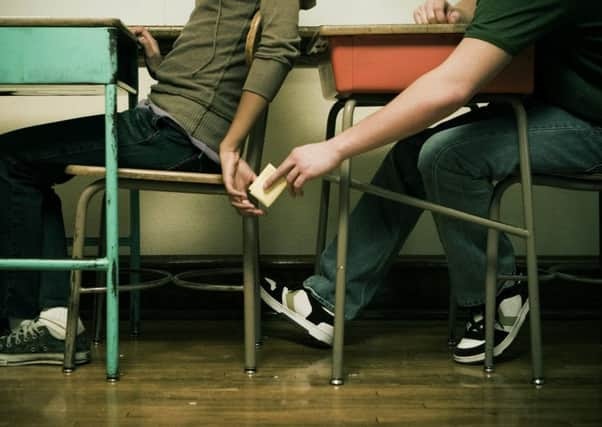Low level disruption '“ the new '˜norm' blighting our schools


Seamus Searson, general secretary of the Scottish Secondary Teachers’ Association, said unacceptable behaviour was on the increase, impacting on pupils’ education and hampering recruitment to the profession.
This type of behaviour included challenging teachers’ authority by telling them to “f*** off”, refusing to stop using phones during lessons, and running amok in corridors, often escalating into a confrontation when a teacher starts dealing with the incident.
Advertisement
Hide AdAdvertisement
Hide AdLast week education secretary John Swinney held a session of the Teacher Panel – a group of teachers, principal teachers, deputy head teachers and head teachers – at Holyrood to discuss discipline problems.
Searson says cuts to teaching posts, such as teacher support and guidance, and closure of units where pupils with problematic behaviour could attend, have both contributed to the problem.
“This type of behaviour, which can involve seven or eight pupils at a time, has always been there but it has become a lot worse in recent years. In many cases it is caused by youngsters bringing issues in from the home or the street. But when it is seen to be the norm it spreads like a rotten apple,” said Searson.
“It can take at least ten minutes to settle the class after one of these disruptive incidents, meaning that it stops other pupils learning. This all takes energy away from teachers.
“We’re not talking about the majority of schools but it’s happening in many schools, every day.
“Children get one chance at an education. This is an issue John Swinney has to acknowledge exists and address it with proper resources.”
Figures from the Scottish Government in December revealed that 26.6 per cent of pupils have additional support needs, ranging from dyslexia, ADHD, and autism to behavioural and emotional problems.
Searson added: “In the past a guidance teacher would have spoken to the pupil, finding out if the pupil had been having a tough time at home, perhaps trying to cope with a parent with drug or alcohol problems, or being bullied at school.
Advertisement
Hide AdAdvertisement
Hide Ad“Now we’re getting at least a dozen calls a week from teachers about this kind of behaviour, and I’m hearing more and more that schools aren’t dealing with it, meaning the pupils causing the problem are back in class next day thinking they’ve got off with it, which they have.”
Liz Smith, Scottish Conservative shadow education secretary, said disruption was damaging to pupil education and if unchallenged would see Scottish education slip further down global educational achievement league tables.
“We cannot allow indiscipline to plague Scotland’s school system.
“This account suggests the education of many children across is being harmed, and that a large part of the problem is the SNP’s inability to staff schools properly. That needs to change.”
A Scottish Government spokeswoman said: “It is important to remember the vast majority of school heads and teachers believe most pupils are well behaved.
“However, we want all our children and young people to behave in a respectful manner towards their peers and staff – and no teacher should have to suffer abuse, verbal or physical. We will continue to support our schools to promote positive relationships among pupils.
“We listen to teachers and have made clear our commitment to reduce workload.
“We have undertaken a range of actions to help clarify and simplify the curriculum framework and to remove unnecessary bureaucracy, and we have taken decisive action to help recruit and retain teachers through our Teaching Makes People campaign, with more secondary teachers than at any time since 2014.”